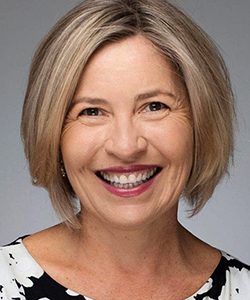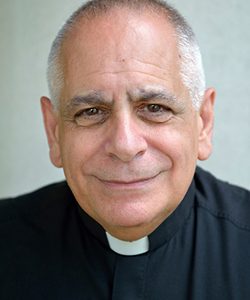Highlights
Over 38,000 refugees in 11 camps in Pakistan received general medical and specialized maternal health services at ICMC-run facilities.
In Pakistan ICMC supplied 15,000 children with textbooks or school bags, while more than 5,500 boys and girls in Jordan received ICMC educational supplies.
ICMC Jordan supported nearly 2,200 households with cash assistance to pay rent, prepare their accommodation for winter and meet urgent needs.
Nearly 6,500 children attended activities in ICMC Child Friendly Spaces in Jordan.
ICMC Malaysia assisted 2,200 refugees through outreach interventions and case management services and accompanied 500 SGBV survivors.
ICMC Jordan held life skills classes for more than 100 young women, while 75 vulnerable Rohingya refugees completed ICMC Malaysia’s English literacy courses.
ICMC’s Resettlement Support Center Turkey and Middle East interviewed more than 3,000 refugees for possible U.S. resettlement and provided pre-departure cultural orientation for more than 1,300.
Local communities in nine European countries received integration training using the SHARE Welcoming Communities curriculum developed under ICMC leadership.
One hundred refugees resettled from Turkey to Croatia with pre-departure and community integration assistance from ICMC’s Resettlement Support Center Turkey and Middle East and ICMC Europe.
Through the Deployment Scheme, ICMC deployed a total of 109 experts to UNHCR operations in 31 countries in Africa, Asia, Australia, Latin America and the Middle East and North Africa.
ICMC experts referred more than 50,100 vulnerable refugees for resettlement consideration to third countries and conducted “best interest of the child” assessments for nearly 1,700 children and their caregivers.
The deployment of 112 ICMC experts to support the Greek Asylum Service contributed to more than 17,300 people acquiring refugee or subsidiary protection.
At the Quito Summit of the Global Forum on Migration and Development, the ICMC-coordinated Civil Society Day gathered 229 civil society delegates and nearly 60 government and other observers.
The Civil Society Action Committee, a coalition of 35 NGOs, entered a new phase in 2019. In February it published the report “Civil Society Models of Engagement in a New Era of Migration Governance.”
Over 45 percent of the civil society representatives participating at the Global Forum on Migration and Development Quito Summit were migrants, refugees or members of the diaspora.
Facing an Uncertain Future Together
Dr. Anne T. Gallagher
President

In December 2018, representatives from some 160 countries came together to affirm their shared vision of a future in which migration is safe and beneficial for all. This unprecedented demonstration of global solidarity reflected a growing acknowledgement that things have gone terribly wrong and must, somehow, be fixed. Violence, political instability and lack of opportunity for anything resembling a good life has rendered great parts of the world deeply inhospitable to millions of women, men and children. For too many, their journey and its end are marked by indignity, hardship and sometimes death. And the countries to which they have fled are – or feel – close to overwhelmed.
The Global Compact for Migration – which ICMC helped nurture from an idea into a reality – is far from a statement of revolution. It is a carefully worded articulation of some key challenges and how these might be addressed. Throughout 2019, we saw some important progress. But we also saw, too often, that the solidarity which inspired the Global Compact remains very fragile. Dealing with migration openly and honestly continues to be a gamble that too many of our leaders are just not willing to take on, even while they know that the status quo is unsustainable. Such failures create a vacuum that is easily filled by those who understand, all too well, how to tap into our collective fears around an increasingly fractured, unfair and uncertain world.
Throughout the period covered in this report, ICMC has actively sought to give substance and voice to the principles and values set out in the Global Compact for Migration (and its companion Global Compact on Refugees). We have worked hard to advocate for laws, policies and practices that place migrants at the centre, and that respect and uphold the fundamental values of human freedom and human dignity. Through our practical works we have sought to deliver support and assistance to those in need.
In these perilous times we must have faith in the ideal of human solidarity. And we must be prepared to do more; to speak bravely; to join together in shaping a future where peace and justice, love and compassion, overcome our indifference, our fears and divisions.
Ours is a modest contribution to an overwhelming challenge. But, as I remind all those who work for and support ICMC, any action, however small, is valuable, not least because it is a direct challenge to what Pope Francis has rightly called “the globalization of indifference.”
Already we can see that 2020 will bring widespread suffering on a previously unimaginable scale. Certainly, ICMC is preparing to navigate stormy waters as it seeks to deliver on its mission to serve and protect migrants and refugees in need. In such perilous times we must have faith in the ideal of human solidarity. And we must be prepared to do more; to speak bravely; to join together in shaping a future where peace and justice, love and compassion, overcome our indifference, our fears and divisions.
A Journey of Solidarity and Compassion
Msgr. Robert J. Vitillo
Secretary General

On the 2019 World Day of Migrants and Refugees, Pope Francis reminded us that, “It is not just about [migrants], but about all of us and about the present and future of the human family.” He called us to examine our attitudes towards people on the move — to reject fear and embrace compassion — and proposed a “globalization of solidarity.”
In 2019 the International Catholic Migration Commission stood, acted, spoke and worked in solidarity with refugees and migrants around the world.
Our direct humanitarian and development operations provided health care, met people’s basic needs with dignity and opened pathways to self-sufficiency.
Refugee children and survivors of sexual and gender-based violence were offered protection and community support to prevent further violence.
Our Resettlement Support Center, operating both in Turkey and Lebanon, facilitated the start of a new life in welcoming host countries for vulnerable refugee families.
In Europe we built capacity to extend welcome and integration, especially in countries and smaller municipalities newly engaging in refugee resettlement.
We advocated for governments to treat migrants and refugees with dignity and to include them in social protection programs.
ICMC’s role in civil society coordination focused on global migration governance and development of new cooperation models to improve migrants’ lives. At the Global Forum on Migration and Development we focused on climate-induced displacement, access to services for all migrants, mixed migration and the increasing criminalization of migrants and those assisting them.
We deployed protection experts to UN Refugee Agency, UNHCR, operations in more than 30 countries. In Greece, our experts provided protection for thousands of new arrivals who risked their lives to escape war, persecution and other threats to life and liberty.
We promoted increased regional and global networking among Episcopal Conferences, religious Orders and Catholic-inspired agencies protecting and serving uprooted people. Through our leadership role in the initiative The Future of Work: Labor after Laudato Sì, ICMC joined many Catholic-inspired organizations in research and advocacy on decent work as envisioned by Pope Francis.
This solidarity with migrants and refugees would not have been possible without the professional skills and personal commitment of staff and volunteers engaged at our Geneva headquarters, our field and affiliate offices and our national member organizations in all parts of the world.
During 2019, a multitude of donors, both institutional and individual, enabled ICMC to continue its work of protecting and serving uprooted people. To all of them, who honor us with their trust, we express our heartfelt gratitude.
I will close this message, as I opened it, with Pope Francis’ 2019 challenge and invitation: “Migrants, especially those who are most vulnerable, help us to read the ‘signs of the times.’ Through them, the Lord is calling us … to be set free from exclusivity, indifference and the throw-away culture.”
A multitude of donors, both institutional and individual, enabled ICMC to continue its work of protecting and serving uprooted people. To all of them, who honor us with their trust, we express our heartfelt gratitude.

